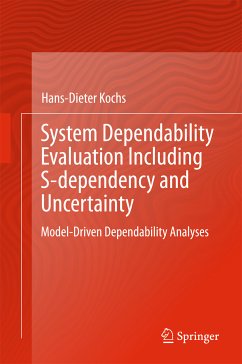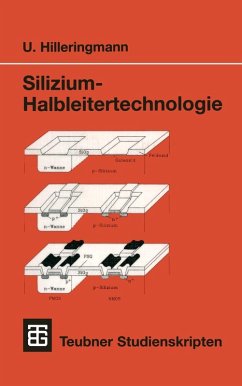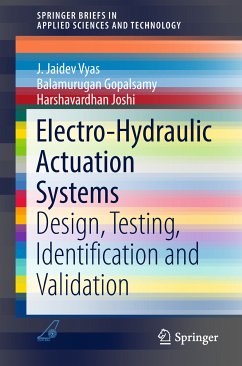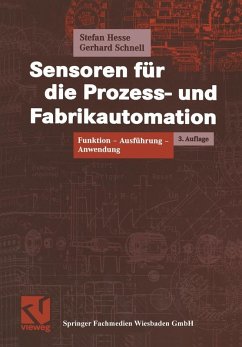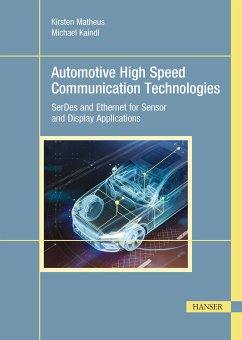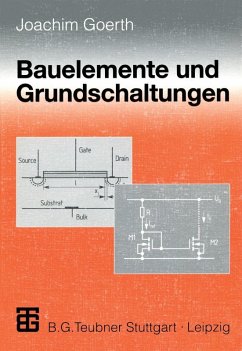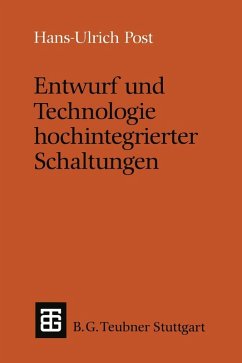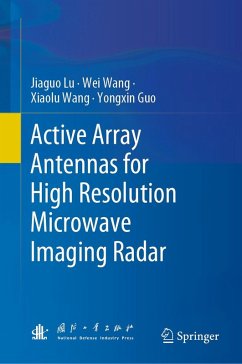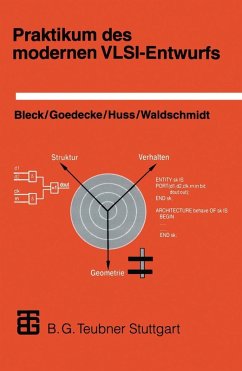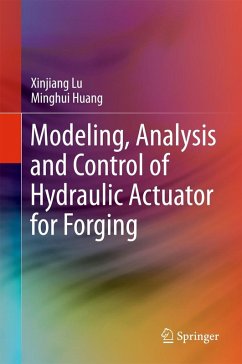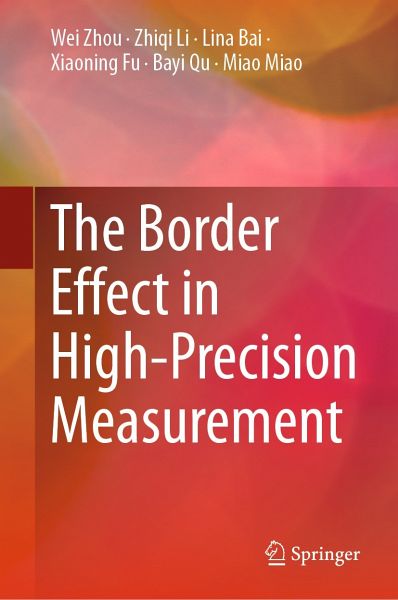
The Border Effect in High-Precision Measurement (eBook, PDF)

PAYBACK Punkte
56 °P sammeln!





Utilizes the higher-resolution stability of measuring devices instead of their resolution to improve on traditional measurement experiments
Eliminates the quantitative errors generally considered to be the main problem in measurements by border effect
Discusses the precision enhancement of different sensors used in instruments with the border effect and processing techniques
Dieser Download kann aus rechtlichen Gründen nur mit Rechnungsadresse in A, B, BG, CY, CZ, D, DK, EW, E, FIN, F, GR, HR, H, IRL, I, LT, L, LR, M, NL, PL, P, R, S, SLO, SK ausgeliefert werden.
- Geräte: PC
- ohne Kopierschutz
- eBook Hilfe
- Größe: 10.33MB
- Text-to-Speech
- E-Mail des Verlags für Barrierefreiheitsfragen: accessibilitysupport@springernature.com
- Alle Inhalte über Screenreader oder taktile Geräte zugänglich
- Navigation über vor-/zurück-Elemente ohne Inhaltsverzeichnis
- Hoher Kontrast zwischen Text und Hintergrund (min. 4.5 =>1)
- Inhalte verständlich ohne Farbwahrnehmung
- Kurze Alternativtexte für nicht-textuelle Inhalte vorhanden
- Text und Medien in logischer Lesereihenfolge angeordnet
- Navigierbares Inhaltsverzeichnis für direkten Zugriff auf Text und Medien
- Keine Einschränkung der Vorlesefunktionen, außer bei spezifischen Ausnahmen
Wei Zhou graduated from the specialty of automatic control at Xi'an Jiao Tong University in 1970; earned his Doctor of Engineering Degree from Shizuoka University, Japan in 2000. From 1970 to 1988, he was engaged in scientific research and measurement at the Shaanxi Provincial Institute of Metrology and Measurement, acting as engineer, senior engineer and chief engineer. From 1988 on, he has been engaged in teaching and research at Xidian University, acting as senior engineer, professor and advisor of PhD candidates. He has over 10 years' joint research experiences with the institutions of higher learning, research institutes and enterprises in the United States, Japan, Canada and Europe. He is member of the FCS Technical Steering Committee of the IEEE, special reviewer of the Chinese Physics Letters, member of the Executive Council of the China Instrument and Control Society, member of the editorial board of the Journal of Scientific Instrument, member of the Academic Committee of the Key National Defense Science & Technology Laboratory of Measurement and Calibration Technology, and part-time professor at the Shenyang University of Technology. He has obtained 2 National Invention Awards and 1 Chinese Instrumentation Invention Award. Prof. Zhou's areas for training master students include measuring techniques and instruments; detection techniques and automatic devices.
Zhiqi Li received her doctorate degree from Xidian University, Xi'an, China in 2012. She is now Doctor of Engineering, associate professor and doctoral supervisor at Xidian University. She has been engaged in the research of time & frequency measurement and control technology, automatic detection technology of precision electronic measuring instruments. She has won second prize of the Science and Technology Progress of the Instrument and Meter Society, secondary second prizes of the Science and Technology Progress of the Ministry of Education for Universities, and second prize of the Science and Technology Progress of Shaanxi Province.
Lina Bai received her doctorate degree from Xidian University, Xi'an, China in 2015, and now she is a professor and doctoral supervisor of Xidian University. Her main research interests are time-frequency measurement and control technology, satellite navigation as well as measuring and instruments. She presided over 21 vertical projects such as international cooperation of the Ministry of Science and Technology and other class items, won 10 awards for scientific research achievements, published 2 academic works and published 27 academic papers, including 9 in SCI and 17 in EI databases.
Xiaoning Fu received his Master and Doctor degrees in from Xidian University, Xi'an, China, in 1994 and 2005, respectively. Since Aug. 2005, Dr. Fu has been with Xidian University as an Associate Professor. Heg has worked in the development of petroleum instruments, participated in major scientific and technological research projects of the Oil and Gas Group Corporation, and won the second prize for scientific and technological innovation of the Corporation; The research on the measurement method of overdamped geophones testing has been incorporated into the standards of China's oil and gas industry. After 2000, he joined Xi'an University of Electronic Science and Technology, and has been engaged in photoelectric positioning, ground penetrating missile/missile tracking, etc. for a long time. He has written four books, including Photoelectric Positioning and Photoelectric Countermeasures, Photoelectric Detection Technology and System, and participated in the preparation of Basic Course of Electronic Packaging Technology and Equipment Technology, C51 Foundation and Application Examples, etc.
Bayi Qu is currently an associate professor at the School of Information Engineering, Chang'an University, Xi'an, China. He graduated fromXidian University, majoring in measurement and control technology and instruments. The current research directions are: time-frequency measurement and control technology, navigation equipment and related signal processing technology, multi-sensor fusion technology and information collection and processing technology in the field of intelligent transportation.
His main scientific research projects include research on miniature atomic clock circuit based on digital compensation, GPS locking secondary frequency standard, research on precise time interval measurement based on length vernier method, and research on time-frequency processing and measurement based on time-phase and time-space relationship, etc. In terms of academic and scientific research achievements, he has published more than 10 academic papers in recent years, of which 7 are retrieved by EI. The representative papers include a new type of precise time difference measurement technology, the development of ahigh-precision time-domain frequency stability measuring instrument, and the frequency conversion compensation technology. Improve the frequency and temperature characteristics of rubidium clocks, and develop high-precision time interval measuring instruments.
Miao Miao received her B.E. in Automation Engineering, M.E. and Ph.D. degrees in Instrumentation Science and Engineering, from Xidian University, Xi'an, Shaanxi, China, in 2003, 2007 and 2012, respectively. Since Apr. 2007, Dr. Miao has been in School of Mechano-Electronic Engineering, Xidian University as a Lecturer. Dr. Miao focuses on the research of time and frequency technology. Her recent research interests include: time and frequency signal transmission and synchronization, Intelligent aging compensation for OCXOs of batch production.
Produktdetails
- Verlag: Springer Nature Singapore
- Seitenzahl: 378
- Erscheinungstermin: 1. März 2023
- Englisch
- ISBN-13: 9789811035937
- Artikelnr.: 67538862
Für dieses Produkt wurde noch keine Bewertung abgegeben. Wir würden uns sehr freuen, wenn du die erste Bewertung schreibst!
Eine Bewertung schreiben
Eine Bewertung schreiben
Andere Kunden interessierten sich für
1) Gebundener Aktionspreis des Verlages. Die Ersparnis bezieht sich auf den gebundenen Preis, der außerhalb des Aktionszeitraums gilt.
| 2) Gebundener Einführungspreis des Verlages. Die Ersparnis bezieht sich auf den gebundenen Preis, der nach der Einführung gilt.
| 3) Gebundener Einführungspreis. Die Ersparnis bezieht sich auf den gebundenen Preis, der nach der Einführung gilt.
| 4) Die Ersparnis bezieht sich auf den gebundenen Preis, der außerhalb des Aktionszeitraums gilt.
| 5) Ersparnis im Vergleich zum gebundenen Preis für die Originalausgabe mit höherwertiger Ausstattung.
| 6) Ersparnis im Vergleich zum niedrigsten Preis der vergangenen 30 Tage.
| 7) Ersparnis im Vergleich zum Preis der gedruckten Ausgabe (broschiertes Buch).
| 8) Ersparnis im Vergleich zum Preis der gedruckten Ausgabe (broschiertes Schulbuch)
| 9) Ersparnis im Vergleich zum Preis der gedruckten Ausgabe (Buch mit Leinen-Einband)
| 10) Ersparnis im Vergleich zum Preis der gedruckten Ausgabe (gebundenes Buch)
| 11) Ersparnis im Vergleich zum Preis der gedruckten Ausgabe
| 12) Ersparnis im Vergleich zum vorherigen gebundenen Ladenpreis
| 13) Ersparnis im Vergleich zur Audio-CD-Ausgabe
| 14) Ersparnis im Vergleich zur CD-Ausgabe
| 15) Ersparnis im Vergleich zur deutschen Hardcover-Ausgabe
| 16) Ersparnis im Vergleich zur deutschen Taschenbuch-Ausgabe
| 17) Ersparnis im Vergleich zur früheren unverbindlichen Preisempfehlung (UVP) des Herstellers
| 18) Ersparnis im Vergleich zur Summe der vorherigen gebundenen Einzelpreise der im Sammelband/Schuber enthaltenen Bücher.
| 19) Ersparnis im Vergleich zur unverbindlichen Preisempfehlung (UVP) des Verlags der Originalausgabe
| 20) Ersparnis im Vergleich zur unverbindlichen Preisempfehlung (UVP) des Herstellers
| 21) Sonderausgabe. Ersparnis im Vergleich zum gebundenen Preis für die Originalausgabe mit zum Teil höherwertiger Ausstattung
| 22) Ersparnis im Vergleich zum früheren gebundenen Preis
| 23) Ersparnis im Vergleich zum niedrigsten Preis der vergangenen 30 Tage
| 24) Ersparnis im Vergleich zum niedrigsten Preis der vergangenen 30 Tage
| 25) Frühere unverbindliche Preisempfehlung des Herstellers
Alle Preise in Euro und inkl. der gesetzl. MwSt. | Innerhalb Deutschlands liefern wir preisgebundene Bücher versandkostenfrei. Weitere Informationen: bitte hier klicken
Bewertung schreiben
BEWERTUNGSFORMULAR
Schließen
Support
Bitte wähle dein Anliegen aus:
Rechnungen
Bestellstatus
Retourenschein
Storno
Sollte dein Anliegen nicht dabei sein, findest du weitere Auskünfte zu deinen Fragen auf unseren Serviceseiten.
Schließen


